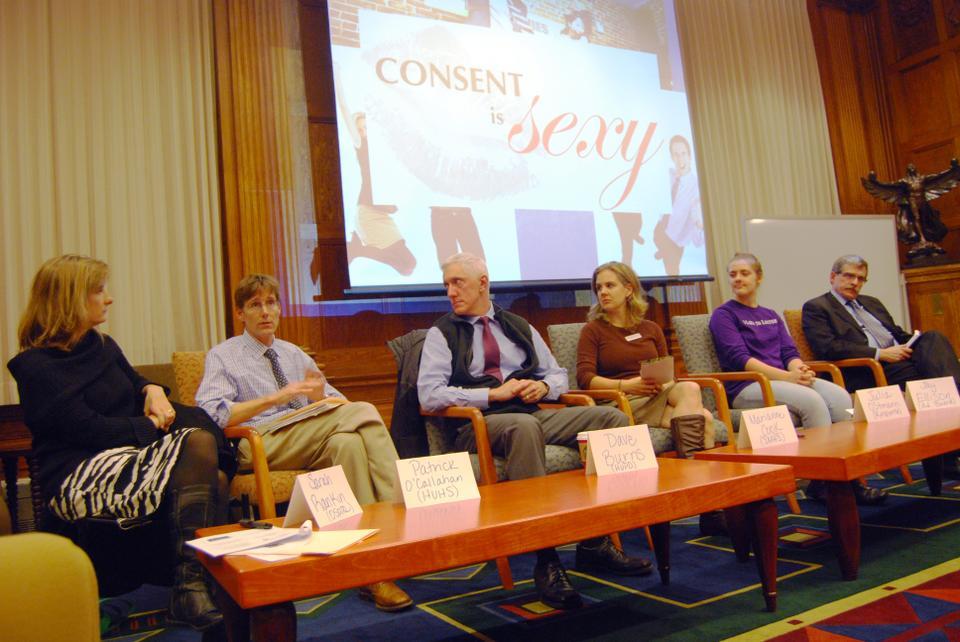
News
Harvard Grad Union Agrees To Bargain Without Ground Rules

News
Harvard Chabad Petitions to Change City Zoning Laws

News
Kestenbaum Files Opposition to Harvard’s Request for Documents

News
Harvard Agrees to a 1-Year $6 Million PILOT Agreement With the City of Cambridge

News
HUA Election Will Feature No Referenda or Survey Questions
In Wake of Amherst, Panel Examines Sexual Assault

Representatives from the Administrative Board, University Health Services, and other campus groups sought to clarify the University’s current policies in dealing with cases of rape or sexual assault at a panel on Wednesday evening.
The panel was organized as a response to the highly-publicized cases of sexual assault at Amherst College. The topic of sexual assault has gained particular salience on campus following a recently passed referendum for Harvard to re-examine its sexual assault policies.
“We want to promote a better understanding of how Harvard handles this issue,” said John N. Azubuike Jr. ’14, vice president of the student group Consent, Assault Awareness, and Relationship Educators. “We need to fill in gaps of information before we have a more evolved dialogue.”
Panelists represented organizations directly involved with sexual assault response on campus, including the Office of Sexual Assault Prevention and Response, the Harvard University Police Department, and the Ad Board.
“Our goal is to make sure that someone doesn’t lose the opportunity to get a degree at Harvard because of something that has happened to them,” said OSAPR Director Sarah Rankin. “Zero percent of these cases are inevitable. They can be prevented.”
Patrick D. O’Callahan, an associate physician at UHS, and Marianne E. Cook ’02, a social worker at Student Mental Health Services, emphasized that students who have experienced sexual assault can avail of their services under complete confidentiality.
“We are here to help people to deal with the emotional and psychological impact of sexual assault and trauma,” Cook said. “Your records are yours and yours alone.”
At the event, Secretary of the Ad Board John “Jay” L. Ellison clarified the process by which students can bring their cases to the University.
“We want students to succeed. We want students not just to graduate, but to enjoy their experience here and to thrive,” Ellison said.
The process includes two written statements from each party, committee interviews, and research by an independent fact-finder.
The Ad Board meets with each student to determine whether there is enough evidence to validate the accusation and whether the incident violates Harvard rules, Ellison said.
Ellison added that the Ad Board’s ultimate responsibility is to the community.
“At the end of the day, it really is about integrity, how we treat each other, and how we live together,” he said.
—Staff writer Michelle Denise L. Ferreol can be reached at mferreol@college.harvard.edu.
Want to keep up with breaking news? Subscribe to our email newsletter.
Most Read
- 3 Harvard Students, 2 Recent Grads Had Visas Revoked
- As Trump Waits for Harvard’s Reply, Governing Boards Meet in Harvard Square
- Garber Promises To ‘Engage’ With Federal Antisemitism Task Force After Funding Threats
- Harvard’s Hyperfixation on Israel Is Academically Unserious
- Harvard FAS Elects 6 New Members to Faculty Council
